Last week we embarked on a blockchain-inspired safari in Nairobi, Kenya. In last week’s article, I described what I learned from research and my first in-person experience on the continent about why Africa is especially fertile ground for blockchain tools to take root. I also introduced the projects that Lido Nation has already launched in Nairobi - namely the Ngong Road Blockchain Lab.
This week we turn our gaze to the future. While in Nairobi, I was amazed by the opportunities and conversations that found me in 10 short days on the ground. There was tremendous energy and enthusiasm to learn, to try something new, and to work together for a better future.
Swahili Learn-to-Earn
In Fund 9 of Project Catalyst, Lido Nation was funded to continue our work in Swahili-speaking Africa with a “Learn to Earn” project. It was a great coincidence that I was in Nairobi at the Ngong Road Blockchain lab when I got the fateful email with Fund 9 voting results and found out we had won funding for this project. I wish everyone who voted for us could have witnessed the excitement at the Lab! Thanks for your votes, and have no doubt that Project Catalyst is changing lives.
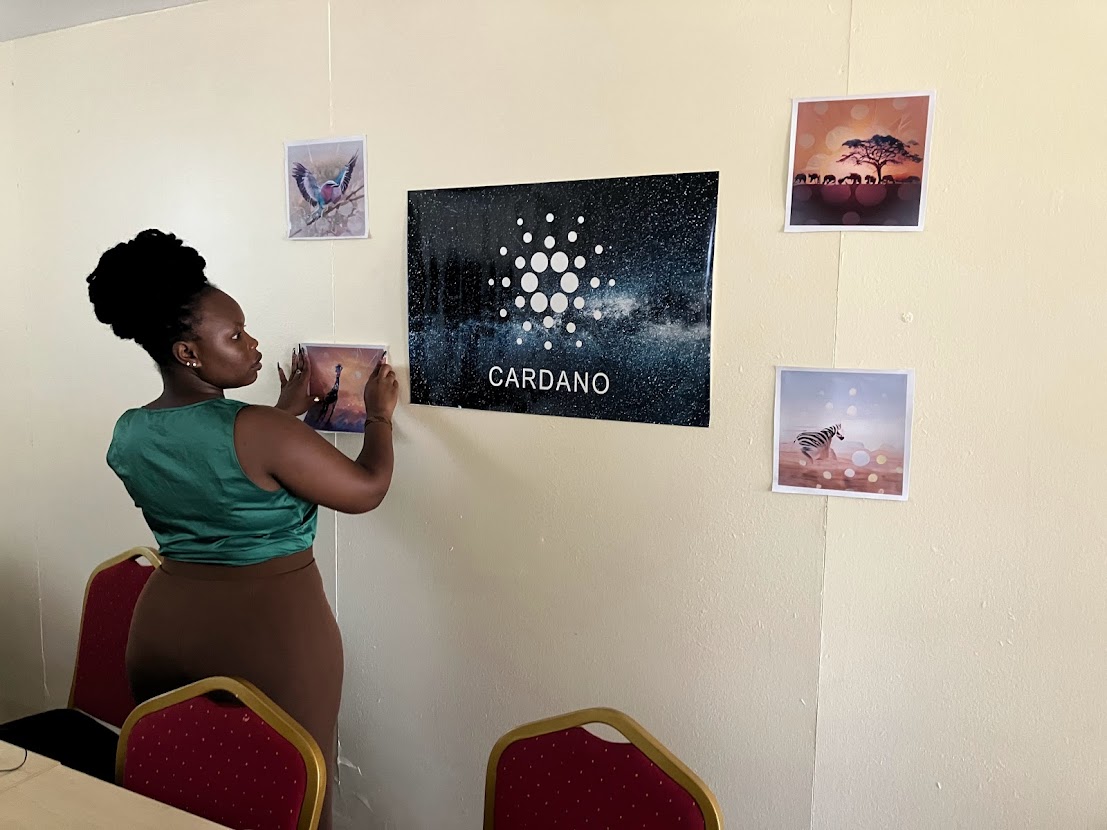 Getting in the Cardano spirit at the Ngong Road Blockchain Lab in Nairobi
Getting in the Cardano spirit at the Ngong Road Blockchain Lab in Nairobi
Using Lido Nation’s educational resources that are already translated into Swahili, we are creating an incentivized learning tool, thus expanding the reach of this material. Swahili speakers can participate by opening a Cardano wallet, connecting to Lido Nation, reading articles, taking quizzes in Swahili, and receiving small amounts of ada as their participation prize. Through this project, we anticipate the creation of hundreds of new Cardano wallets in Africa, each seeded with a little ada. All this, so the collective consciousness of the participants is seeded with new knowledge about decentralization, blockchain, Cardano, and Project Catalyst.
How you can participate: If you have connections to people, organizations, or communities in Swahili-speaking Africa, tell them about Lido Nation. We already have more than 40 articles available in Swahili. Starting in 2023, Swahili-speaking users will be able to earn ada on the website by reading articles and taking quizzes about the content.
DirectEd.Dev
This Project Catalyst project caught my eye as a Proposal Assessor in Fund 8, with their proposal to build a “Scholarship/donation platform based on Atala PRISM enabling secure, low-cost, conditional peer-to-peer donations to students.” This was right up my alley with my background in education and nonprofits. My interest grew when I learned they targeted a high school in Nairobi for their project pilot. While in Nairobi, the blockchain lab team and I were lucky enough to meet with DirectEd’s local project lead, Moses.
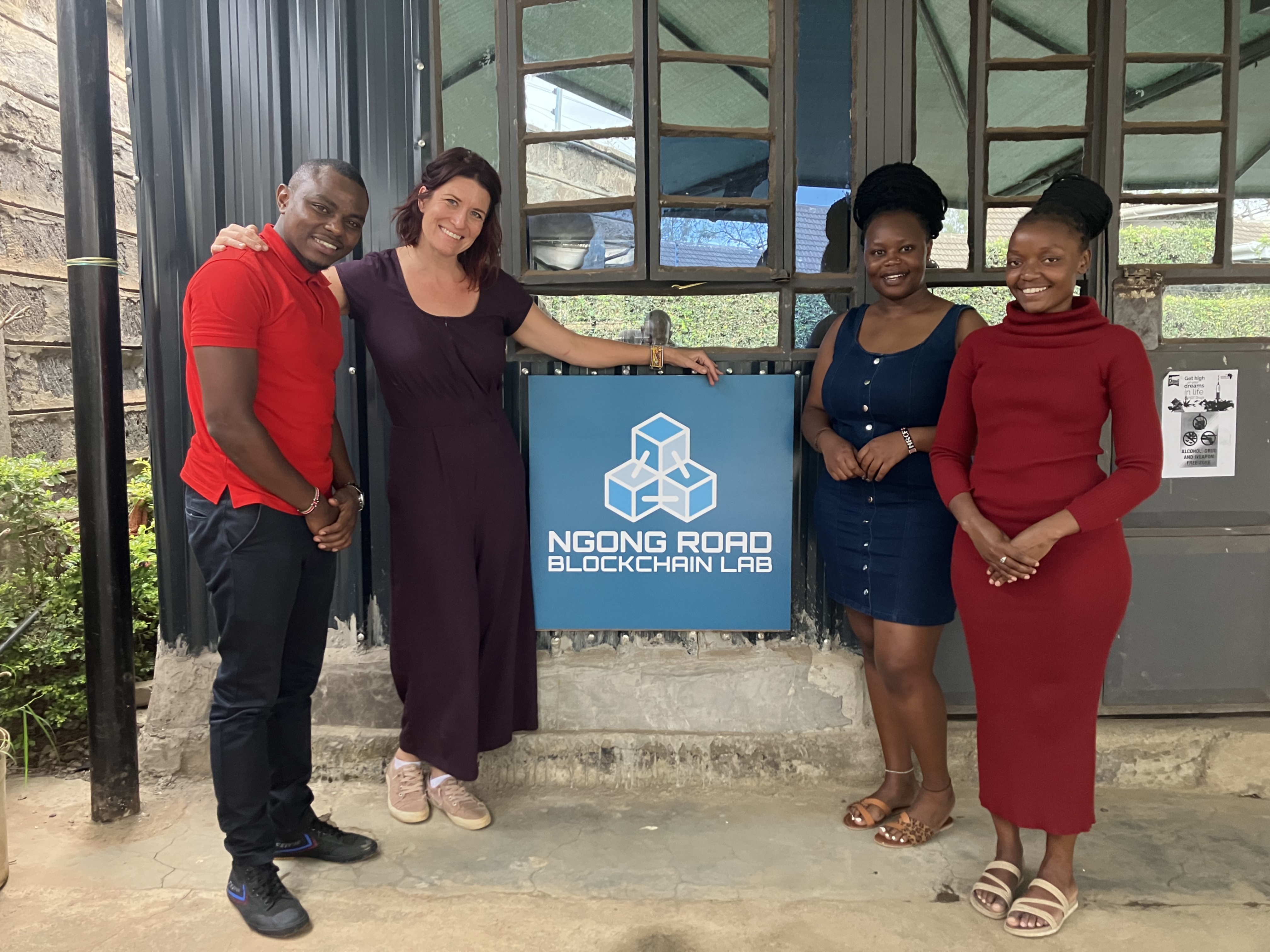 Representatives from Lido Nation, DirectEd, and Ngong Road Blockchain Lab - a meeting of minds
Representatives from Lido Nation, DirectEd, and Ngong Road Blockchain Lab - a meeting of minds
According to a Forbes.com article, we are facing a predicted developer shortage numbering in the millions within the next three years; many are already feeling the impact of this growing issue today. DirectEd is tackling this issue head-on by directing training and scholarship resources to grow the African developer workforce. I learned that they are defining the focus of their scholarship program, targeting students interested in computer development, and providing targeted developer training resources to strengthen the program’s impact.
How you can participate: You can listen to a great interview with DirectEd founder Simon Sallstrom, check out monthly project reports on their website, and follow them on Twitter.
Safi.Eco
Through network connections, I had the pleasure of meeting with Joe from the nascent blockchain project safi.eco. This project is so new that they have yet to settle on which blockchain(s) they will partner with. However, they have a great vision for how blockchain can enable exciting future innovations. Safi means clean or pure in both Arabic and Swahili. From their team, I learned that many African countries like Kenya had dramatically increased their local production capability in recent years, which has led to a proportional increase in energy demand. However, slow and inefficient financing mechanisms have hindered the deployment of new energy assets. It may take end users, such as farmers, several years, and at very high-interest rates, to buy energy production equipment such as solar panels.
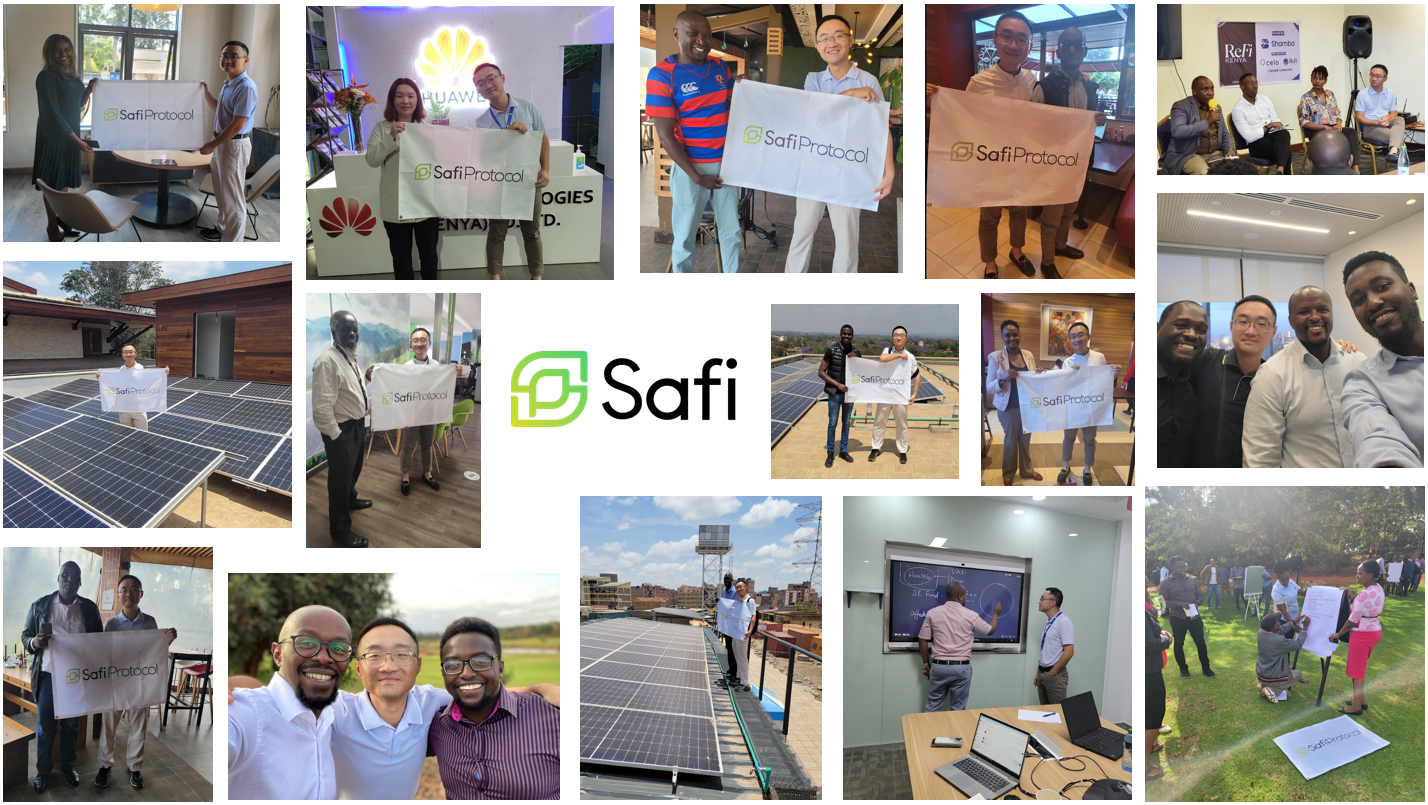
Safi Protocol is bridging this market gap by leveraging the power of Web3 to connect global climate financing to real-world energy projects at a sustainable rate. They are bringing ownership and development of climate mitigation assets back to the grassroots by making investing, buying, borrowing, and paying for renewable energy as easy as using TikTok. Their vision is that in order to speed up the process of decarbonizing the economy, we must work together as a global community to make climate mitigation simple, fast and transparent.
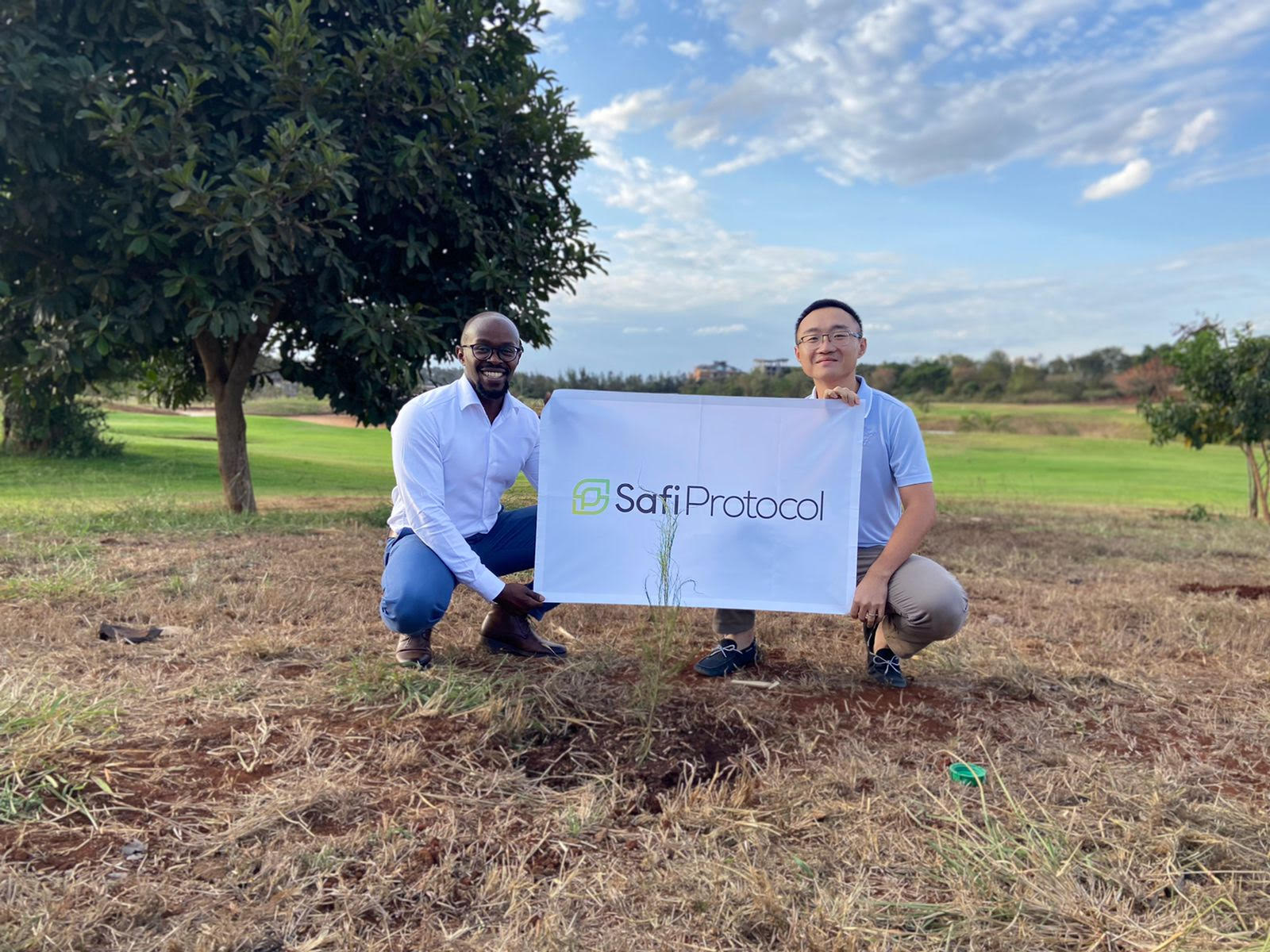
How you can participate: read more about the project and sign up for updates on their website, Safi.Eco. If you have a clean energy project or idea and want to connect with the Safi.Eco team, send an email to: [email protected]
Smart Farming – Military Innovations at the Nairobi Trade Fair
This last headline is a bit off the beaten blockchain path, but to me, it encapsulated what I observed in Nairobi regarding the raw potential in the region. I was lucky enough to attend Nairobi’s annual “Trade Fair” – a fun and educational event that draws busloads of school children from all over.
A fair is a fair, I guess. Here I am at the Pig Barn at the Nairobi Fair
The fair bore striking similarities to my local (Midwest USA) state fair, with agricultural displays, education buildings, booths from an array of industries, and of course, lots of good street food.
Fair Food with African flair: sugarcane, ginger, and limes juiced to order!
One booth at the large Kenyan military exhibit showcased new agricultural innovations for Kenyan farmers. I come from a farming family, so I’m familiar with some of the innovations in U.S. farming, including tractors bigger than houses, driven by GPS robots. By contrast, the new farming tools that are “breaking ground” (har har) in Kenya are human-sized, solar-powered, or simply using something like bicycle gears to make life easier and more productive for a subsistence farmer.
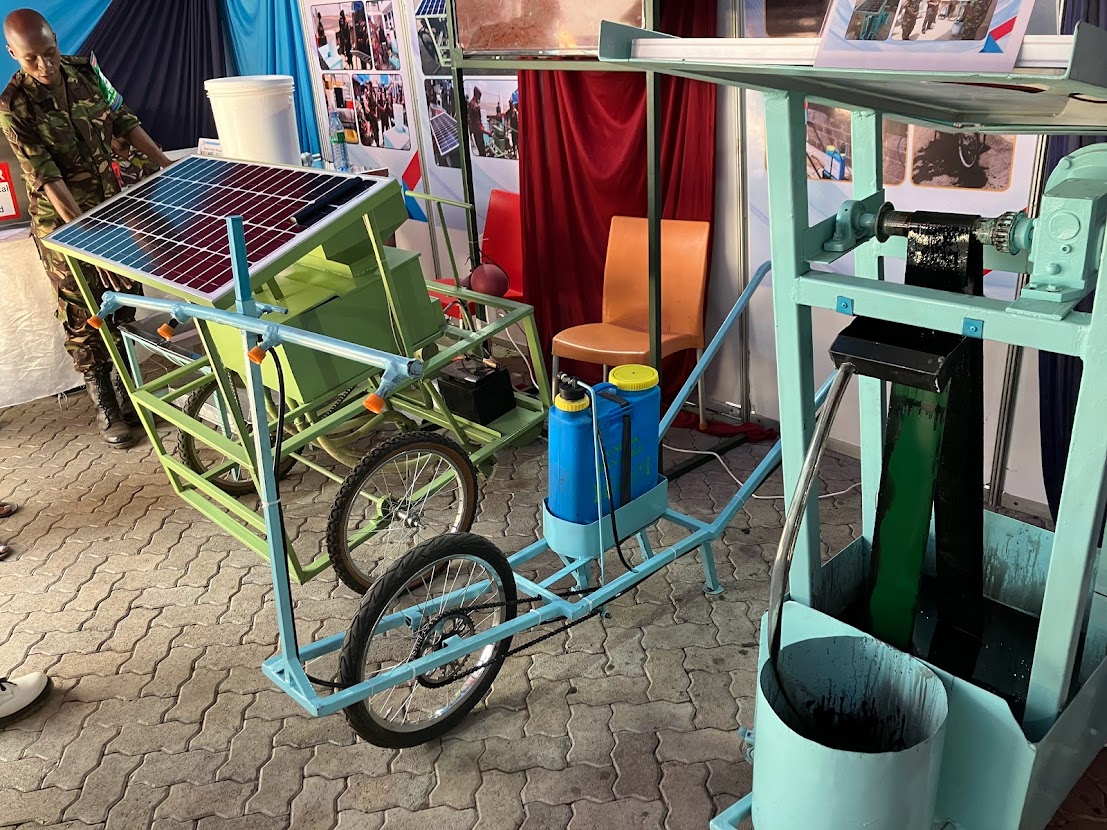 A solar-and-human-powered planting machine, a geared, multi-nozzle crop sprayer, and a solar-powered oil separator. Each of these uses technology that is accessible and sustainable to provide a significant improvement for tasks currently done very manually.
A solar-and-human-powered planting machine, a geared, multi-nozzle crop sprayer, and a solar-powered oil separator. Each of these uses technology that is accessible and sustainable to provide a significant improvement for tasks currently done very manually.
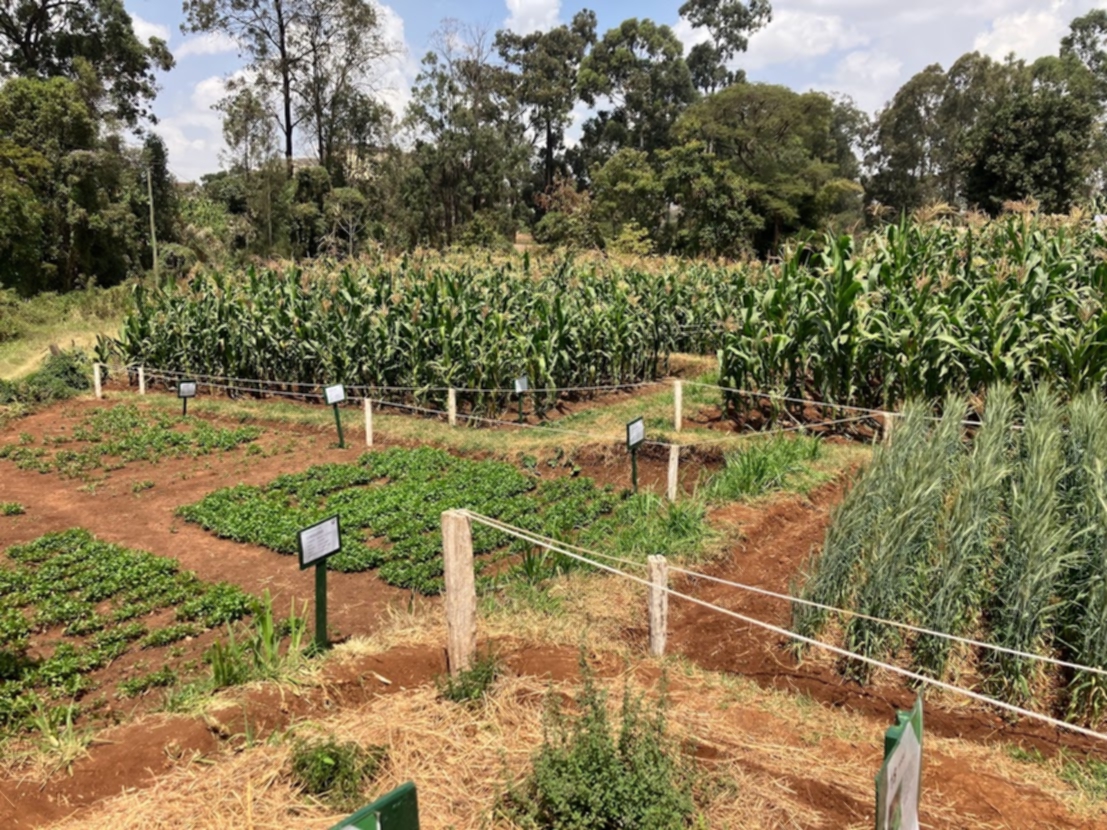 Test plots demonstrating different crops and growing techniques.
Test plots demonstrating different crops and growing techniques.
Against this backdrop, a poster described a new app for dairy farmers called “MaziwaSoko” (Milk Market). Currently, most rural dairy farmers have no access to transparent information about milk prices and other relevant information to their trade. As a result, they are beholden to operators in the “informal” marketplace who buy their milk at whatever price they can get away with. The MaziwaSoko app is rolling out to introduce marketplace transparency and record-keeping to farmers who previously had no formal access to those tools. To those of us with interest in blockchain, words like “transparency” and reliable “records” are like the opening lyrics of our favorite song. In parts of the developing world like Nairobi, people are interested in this technology not just because it is inherently interesting but because the needs are so plentiful and pressing .
How you can participate: As you think about your next blockchain project, consider connecting with builders and communities that are growing in Africa. The Cardano community already has a strong network of people working on the continent and an explicit community interest in increasing that commitment through Project Catalyst and other partnerships. Other strong Cardano projects to explore in Africa would include Empowa and Wada.
Conclusion
Thanks for joining me for this slideshow narration of my trip! Taken together, the projects and people I witnessed were an inspiring, living testimony about what is exciting about blockchain, Cardano, and Project Catalyst. If you’ve been watching from the bleachers, I invite you to come down and jump in the game.
As a first step, register your wallet to vote in Fund 10. Go to this great article on registering to vote on Project Catalyst when you are ready to get going!
If you need to earn 500 ada to qualify to vote, take our free Proposal Assessor Training to participate in Fund 10 in that role; a diligent assessor is almost guaranteed to earn that much ada for an honest day’s work as an assessor.
If you are curious about what other kinds of projects are getting funded through Project Catalyst, hop into our Catalyst Explorer tool , where you can discover proposals and funded projects of all kinds.
If you are ready to start building, consider applying for funding in Fund 10! Even if you don’t win funding the first time around, you are sure to receive feedback from the community and make new friends with other builders who share your interests, which will lead to the next thing in your journey.
If you have questions about any of these ways of participating, search for “Project Catalyst” in our global search to find specific relevant articles - or contact us !



No comments yet…